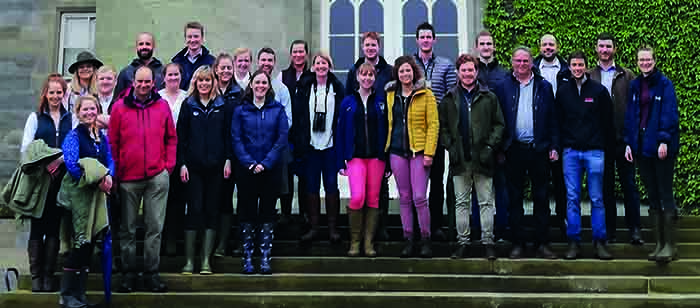Jonathan McKechnie is key account manager for A‐One Feeds and a member of Young NPA
As a millennial, my world has been filled with instantly accessible information from my early teenage years, and this has only expanded in the last 20 years to the point at which all information, positive, negative, true or false, is readily available.
The UK pig industry has done such an amazing job in improving pig performance while creating an industry that has welfare at the core of its values.
I recently visited the AHDB Consumer Insights Conference as part of a Young NPA delegation. The conference highlighted to me that the consumer is increasingly concerned about the environmental impact of pig production and the welfare conditions in which animals are raised.
It also showed that the UK pig industry needs to engage more with society, utilising not just traditional media streams but also becoming part of the digital dialogue, especially social media.
In last month’s Pig World, Rebecca Veale highlighted that, although individuals eating a plant-based diet account for 2% of the population, vegan offerings are up by 55% on menus and this is one of the fastest growing supermarket categories. This got me thinking – how is such a small percentage of the population so successful at being heard?
I believe that it is the result of their success in utilising the potential of digital media. Social media is a place where the consumer gathers inspiration, shops and decides on meal choices.
There is an entire marketplace where the meat sector, in particular pork, is under-represented.
It is reported by Forbes online that 84% of millennials are likely to be influenced to make a purchase based upon user generated content that is created by strangers.
If the pig sector and the farming industry as a whole is to avoid being left behind and benefiting from the impact of the digital world, it is imperative that the younger and future generations harness the potential of digital platforms.
According to the conference, trust and transparency are key reasons for meat avoidance. As a result, I think we need to hear more from farmers– more about our outstanding British welfare standards, more about improvements within the industry more cooking ideas.
We need to use social media as a way of bridging the gap from farm gate to supermarket to table.
So the current and next generation, myself included, must ensure that the digital space represents our industry fairly, correctly and in a way that inspires consumers to trust and buy what we produce.




